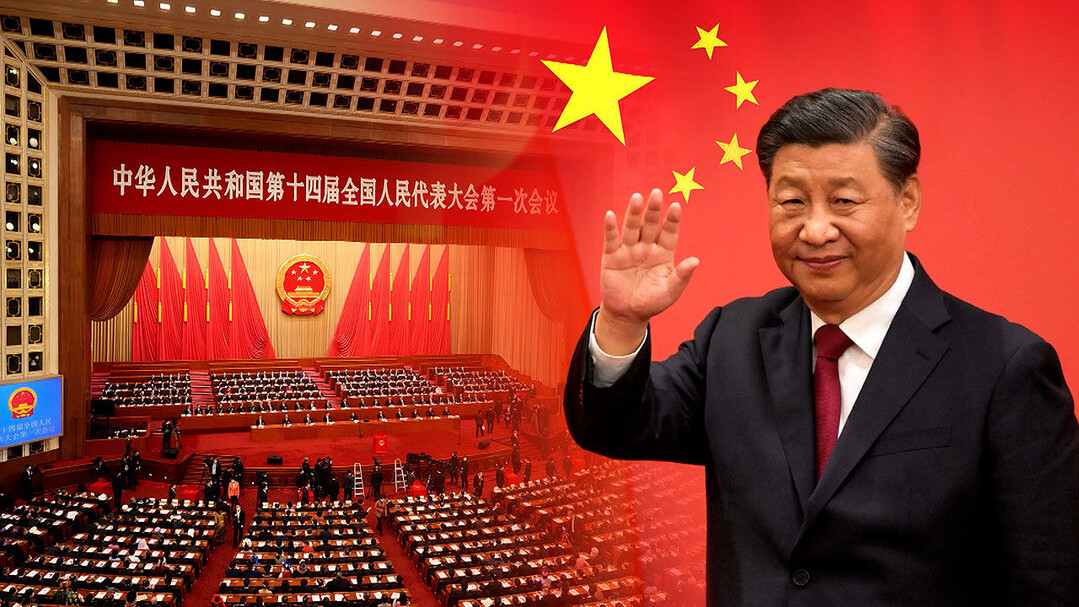
The world is watching US President Donald Trump's every move. This is because it is shaking the existing trade order and security order from the bottom.
Relatively, there is less interest in Chinese President Xi Jinping. However, we must not overlook the "changed appearance" of "G2" China, which threatens "G1" America. This is especially true for our country.
President Xi Jinping held a private enterprise symposium on the 17th.
He also invited Ma Yun, the founder of Alibaba, who had been "disliked" by Xi. Liang Wenfeng, the founder of DeepSeek, who shocked the world with a "low-cost, high-performance" artificial intelligence (AI) model, was also present. In addition, the leading figures of China's high-tech private companies, such as Huawei founder Ren Zhengfei, BYD Chairman Wang Chuanfu, Unitry Chairman Wang Xingxing, and Xiaomi Chairman Lei Jun, were all present.
On the other hand, real estate tycoons such as Vanke, Hengda (Evergrande), and Country Garden, whom Xi called to the private enterprise symposium for the first time since taking office in November 2018, were excluded from the invitation list.
According to the Hong Kong <Sing Tao Daily>, experts analyzed that this shows that real estate is no longer the core of private economic growth, and that new energy and high-tech manufacturing have replaced it.
<Bloomberg News> went a step further, analyzing that "removing the bubble in the real estate market, which was once responsible for a quarter of the gross domestic product (GDP), and growing China, the world's second-largest economy, is the core of Xi's plan."
According to Bloomberg Economics, an economic research institute under <Bloomberg News>, the high-tech industry accounted for 15% of China's GDP last year and is expected to surpass the size of the housing sector next year.
The Chinese economy has suffered extreme pain from the bursting of the real estate bubble over the past four years.
President Xi Jinping declared in early 2021, "Houses are for living, not for speculation," and ordered commercial banks to stop lending for real estate, starting a war with the real estate bubble. As a result, China's largest real estate company, Evergrande, faced a default crisis at the end of the same year, and most real estate companies in China were pushed to the brink of bankruptcy.
Consumption by Chinese people, who hold 80% of their personal assets in the form of real estate, has frozen. This was natural, as house prices in local areas had plummeted by more than 40%.
Moody's downgraded China's national credit rating, and some even feared the outbreak of a "second Lehman crisis from China."
Foreign media also reacted coldly. <The Wall Street Journal (WSJ)> even asserted in 2023 that "China's economic growth model, which has developed its economy and achieved remarkable growth by investing in factories, skyscrapers, and roads for decades, has been broken."
Xi Jinping was also embarrassed by the "unexpected hard landing" of the real estate market and introduced several measures to boost domestic demand. However, they always fell short of the expectations of the real estate industry. He was determined to prevent a hard landing, but he had no intention of recreating the real estate bubble.
Instead, he found a breakthrough for growth in high-tech industries. As a result, China has made a remarkable leap to the top of the world in electric vehicles, secondary batteries, drones, robots, and recently, even in the field of AI, as the "DeepSeek Shock" shows. As a result, last year, China defied the world's expectations and achieved 5.0% growth, as if to show off. It was the result of the high-tech industry's leap forward.
As <Bloomberg>'s analysis that "removing the bubble in the real estate market, which was once responsible for a quarter of the gross domestic product (GDP), and growing China, the world's second-largest economy, is the core of Xi's plan," Xi Jinping has succeeded in "remodeling the Chinese economy."
It is analyzed that our country is becoming the biggest victim of China's rapid advancement, to the point where it is even analyzed that we have been pushed out of 7 of the 8 core industries by China. Warnings have long been issued at home and abroad that we will become "frogs in a slowly heating pot."
However, the political circles have been engrossed in political strife for the purpose of seizing power, and the private sector has not been able to make desperate efforts for innovation. As the real estate market slump deepens, they are vying to release regulations on Gangnam real estate and urging support for local builders. It is read as a move aimed at an early presidential election.
There is no leader like Xi Jinping who, even if it is painful, abandons the growth model that relies on the real estate bubble and bets on high-tech industries.
Of course, Korea has a powerful weapon that China does not have, which is "K-culture." It is also possible to create high added value when combined with manufacturing. However, unless there is a leader's will to "remodel the economy" with a long-term perspective while enduring the pain in front of him, like Xi Jinping, it is difficult to expect.
[Copyright (c) Global Economic Times. All Rights Reserved.]



























